
August 2017
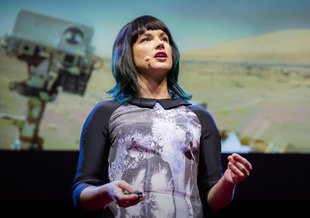
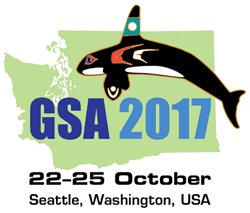
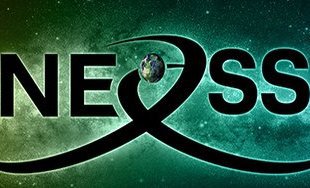
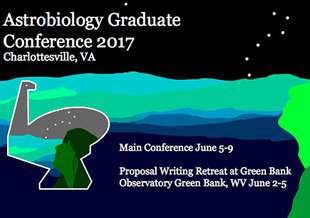
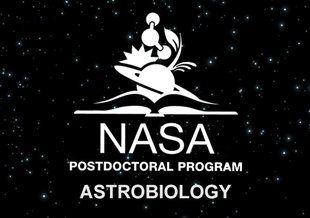
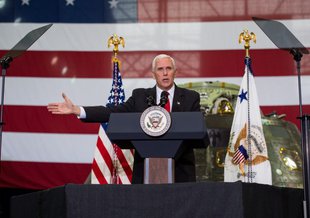
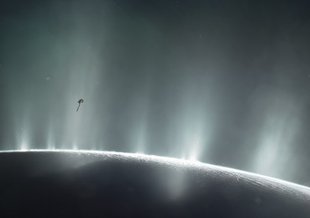
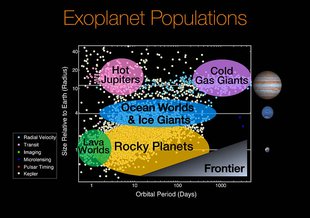
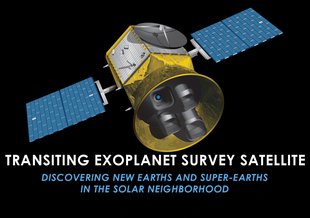
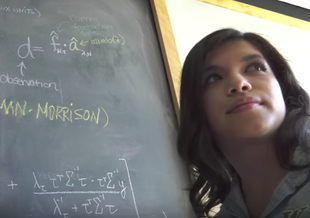
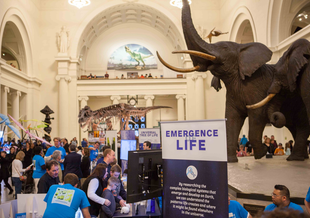
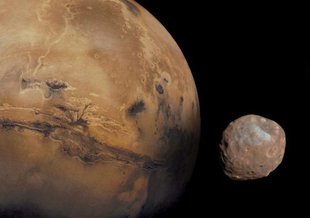
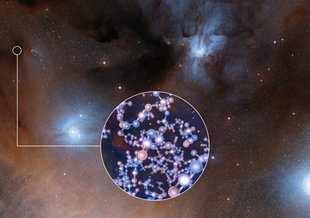
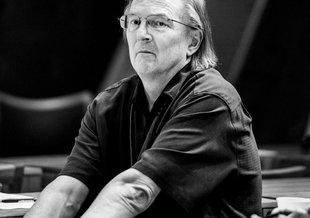
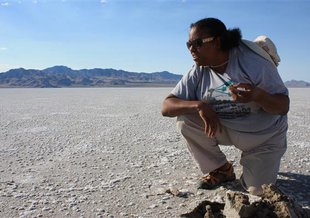
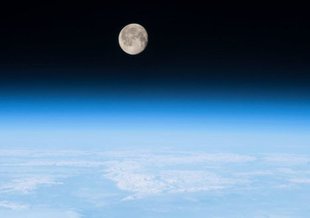
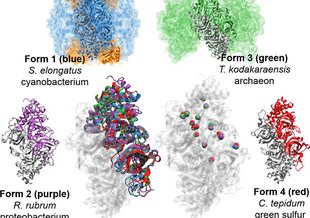
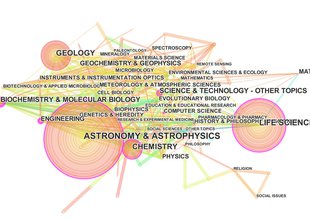
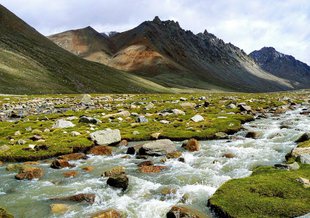
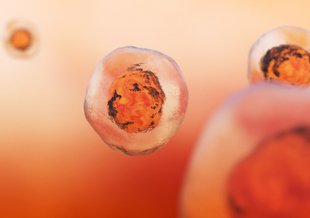
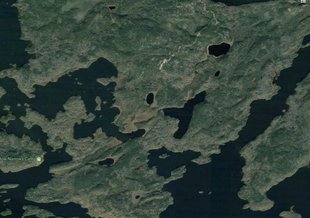
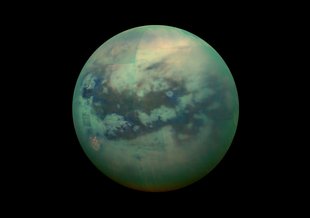
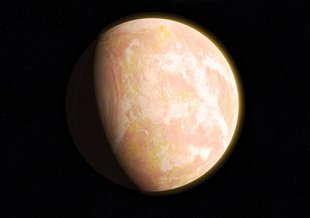
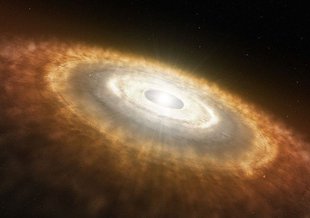
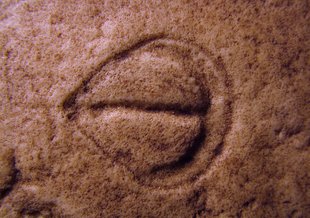
Title: Building Bridges from Earth to Life: From Chemical Mechanism to Ancient Biology
When: 9-11 January 2018
Where: Tokyo Institute of Technology, Ookayama Campus, Multi-Purpose Digital Hall, Tokyo, Japan
Understanding the transition from the Earth’s earliest geochemistry to the later emergence of life requires a synthesis of knowledge across an unprecedented range of scales, including size, time, and complexity. Multiple topics need to be examined, such as elementary mechanisms in organic geochemistry and catalysis, energy sources and systems contributing to prebiotic reactions, the assembly and roles of intermediate-scale structures, and molecular and ecological systems evolutionary biology. Recent advances in several areas bring us closer to connecting several links needed to reason from micro to macro, and from geochemistry to nascent biochemistry. The goal in this symposium is to hold a collaborative conversation, among speakers and participants, to sketch the form of this emerging bridge, and to point out both the most compelling opportunities and the most urgent needs.
Deadlines:
05 October — Deadline for poster submission for students requesting travel support.
20 October — Deadline for poster submission (not eligible for travel support).
30 November — Deadline for general registration.
The conference webpage includes registration, abstract submission for poster presentations, and contact information. *Researchers and students in related fields are encouraged to attend. *There is limited travel support available for students who present a poster. *A public lecture and post-symposium workshops will be also held.
Click here for more information.
Application Deadline: August 14, 2017
NASA has posted a position in the Office of Safety and Mission Assurance for Planetary Protection. It has a very short response time, with applications due by August 14, 2017. This position is now assigned to Office of Safety and Mission Assurance for Planetary Protection. Planetary protection is concerned with the avoidance of organic-constituent and biological contamination in human and robotic space exploration. NASA maintains policies for planetary protection applicable to all space flight missions that may intentionally or unintentionally carry Earth organisms and organic constituents to the planets or other solar system bodies, and any mission employing spacecraft, which are intended to return to Earth and its biosphere with samples from extraterrestrial targets of exploration.
The initial appointment will be for 3 years, with the possibility of extending for an additional 2 years. This may be converted to a permanent position without further competition.
NOTE: This announcement is open to U.S. citizens and U.S. nationals
For additional information regarding the position, as well as qualifying and application procedures, please review the complete announcement at:
https://www.usajobs.gov/GetJob/ViewDetails/474414000#hiring-paths
Additional questions regarding this position can be directed to:
Human Resources Management Division
HQ-NASAHQ-Jobs@mail.nasa.gov
Click here for more information.
Application Deadline: August 18, 2017
Overview:
The California Institute of Technology (Caltech), Postdoctoral Scholars Program at the Jet Propulsion Laboratory (JPL) invites applications for a postdoctoral research position in JPL’s Planetary Ices Group. Dr. Laurie Barge will serve as JPL postdoctoral advisor to the selected candidate. The appointee will carry out research in collaboration with the JPL advisor, resulting in publications in the open literature.
The “Becoming Biotic” project, funded by the NSF-NASA Ideas Lab for the Origins of Life, aims to provide the first direct examination of hypotheses regarding the emergence of metabolic pathways. The goal is to attempt to recapitulate ancient metabolic pathways by replacing protein enzymes with non-protein catalysts in early Earth conditions. The two-year project will consist of tasks conducted in a multi-institution effort between JPL, University of Southern California, and Oberlin College. Frequent communication and coordination will be required with the USC/Oberlin Co-I’s and their postdocs and students.
Responsibilities:
The successful candidate will:
1. Identify a set of early Earth conditions under which we will test whether the cofactors can drive metabolic reactions. This will be done jointly with Co-I’s at USC and Oberlin.
2. Test individual cofactors for their ability to catalyze metabolic reactions in the absence of protein enzymes. This Task will also involve the development of synthesis procedures for organic and inorganic cofactors.
3. Measure the kinetics of cofactor-driven reactions for a set of ancient metabolic pathways under several early Earth conditions.
4. Recapitulate an ancient metabolic pathway under several early Earth conditions using cofactors without protein enzymes.
Qualifications:
Candidates should have a recent Ph.D. in chemistry, organic chemistry, biochemistry, geochemistry, electrochemistry or related fields. The ideal candidate will have expertise in working with protein cofactors, mineral synthesis and anoxic methods; experience working with analytical methods (particularly 1H liquid NMR), and working with hazardous chemicals (e.g. thioacetic acid, hydrogen sulfide). Highly motivated candidates with some of this expertise will be considered, assuming willingness to learn new skills. Candidates will be expected to help develop lab safety protocols for hazardous materials and should be willing / able to assist with general lab management and supervision of student researchers. The ideal candidate will be an independent problem solver, and will be enthusiastic about participating in the astrobiology/origin of life scientific community. Candidates who have received their PhD within the past five years since the date of their application are eligible. Postdoctoral Scholar positions are awarded for a minimum of one-year period and may be renewed up to a maximum duration of three years.
For more information, contact Dr. Laurie Barge
Click here for more information.
Application Deadline: August 21, 2017
The Swedish Institute of Space Physics (IRF), Uppsala, Sweden, is seeking candidates for a postdoctoral position to study magnetic reconnection in space and, in particular, in the Earth’s magnetosphere based on data from the multi-spacecraft missions Cluster (ESA, launched 2000) and MMS (NASA, launched 2015). The successful candidate will be involved in international collaboration. Analysis of data is an important part of the work and experience in combining advanced data analysis with theoretical modelling is an advantage. Interest and experience in development of scientific instruments and measurement techniques will likewise be positively valued, as will experience in coordination of scientific activities.
Candidates should have completed a PhD during 2014 or later. The position is available at the Uppsala office of IRF, for 2 years. Candidates should be ready to start no later than January 2018. Reference number: 2.2.1-182/17
Click here for more information.
Application Deadline: August 25, 2017
The Small Bodies Node (SBN) of NASA’s Planetary Data System, based in the Department of Astronomy at the University of Maryland, College Park, is seeking a programmer with analytic experience who would work with a larger group of planetary scientists and programmers. The ideal candidate will also work closely with programmers at the Minor Planet Center at the Center for Astrophysics, Cambridge, MA, concerned with small body astronomy and orbital calculation. 5 years experience is required, including some system administration experience or training, and with some experience either designing or implementing IT security measures in a Linux network environment. A familiarity with relational database management is also desired. A Bachelor’s or Master’s level degree in computer science or a related field is preferred, but previous work experience will also be considered. Near-term tasks include developing a cross-identification database for all bodies represented in the archive, overseeing the security plan for the SBN, back-end development and user interface development, and reporting to NASA.
For more details and to apply, visit: https://jobs.physicstoday.org/jobs/9151374
To receive full consideration, applications must be submitted by August 25, 2017.
Click here for more information.
Application Deadline: August 30, 2017
Harvard University Post-doctoral Fellow positions available for Chemistry or Physics or Computer Science Ph.D.’s to work in a project on the “Top-down Synthesis of Biologically Inspired Chemically Operated Systems” led by Dr. Juan Perez-Mercader in Harvard’s Department of Earth and Planetary Sciences and within Harvard University’s Origins of Life Initiative.
We have several positions available for recent Ph.D.’s to become involved in experimental work on (1) Chemically Induced Cooperative Phenomena, (2) Physics of Polymersomes and Self-Replication, (3) Polymerization Induced Self-assembly and (4) Oscillatory Chemical Reactions.
We also have positions in our group to work on (5) Computing with Chemistry. We are looking for individuals familiar with analytical as well as numerical experience in this (or an ancillary) topic and willing to establish a dialog with others already involved in ongoing experimental, theoretical and/or phenomenological work.
These positions will be initially awarded for one year and, contingent upon strong performance, may be renewed for up to two additional years. Those interested in applying are invited to send a copy of their CV, three letters of recommendation and a short (limited to one page) statement of his or her scientific interests to Juan Perez-Mercader jperezmercader@fas.harvard.edu with copy to Ms. Pat Lau patlau@fas.harvard.edu. The three letters of recommendation must be sent directly from the authors to Juan Perez-Mercader. Evaluation of the applications received before August 30, 2017 will begin immediately and decisions made by the end of September 2017 or earlier. The positions can start as soon as October 1, 2017. For additional information you may address your specific questions by getting in touch with us through our web page e-mail link http://www.fas.harvard.edu/~topdownsynthbio/email.cgi
Harvard University is an Equal Opportunity/Affirmative Action employer, strongly encouraging applications from women and minority scientists, and offering competitive compensation and benefits.
Click here for more information.
Application Deadline: August 31, 2017
Lowell Observatory invites applications for one or more tenure-track or tenured research positions in astronomy or planetary science. We invite applicants at any career level who can build on current observatory strengths or open new areas for Lowell.
Requirements include:
A Ph.D. in astronomy, planetary science, or a related field
An outstanding record of research
Ongoing external research funding and potential for continued funding success in the future.
The mission of Lowell Observatory is to pursue the study of astronomy, especially the study of our solar system and its evolution; to conduct pure research in astronomical phenomena; and to maintain quality public education and outreach programs to bring the results of astronomical research to the general public. Candidates should describe why they are interested in this position and how they would contribute to Lowell’s scientific mission. Equal consideration will be given to all areas of observational and theoretical research.
For a complete job description and instructions on how to apply, please visit: https://lowell.edu/about/employment/
Click here for more information.
Application Deadline: September 1, 2017
The Hatzenpichler Lab at Montana State University, Bozeman, is looking for a postdoctoral scholar to study the spatial organization of microbial activity in marine sediments. Specifically, we seek to analyze the identity, three-dimensional distribution, and cell-cell interactions of metabolically active microbes in salt marsh and deep-sea sediments. Succinctly, we want to test the hypothesis that the metabolic rates of individual cells located in close physical proximity may vary by orders of magnitude due to differences in nutrient availability, mineral distribution, and metabolic interactions between cells. The postdoc will use a unique combination of cutting-edge techniques, including bioorthogonal labeling of translationally active cells, stable isotope probing and Raman microspectroscopy, as well as sorting and sequencing of individual metabolically active cells to accomplish this objective.
Applicants must be highly motivated and have strong research experience and a publication record in the fields of environmental microbiology, microbial ecology, microbial physiology, or biogeochemistry. Candidates with strong proficiency in molecular biological techniques (e.g. isotope labeling, cell sorting) and bioinformatics (genome sequencing and annotation, programming, and data visualization) are particularly encouraged to apply. Applicants must have a Ph.D. in environmental microbiology, marine ecology, geomicrobiology, biogeochemistry or a related field at the time of the appointment. Requirements are: excellent written and oral communication skills; ability to work in a team; student mentoring; commitment to the development of manuscripts for peer-reviewed journals; and a willingness to participate in experimental field work and visits to collaborator labs.
The position will be available starting September 1st 2017 and will include full benefits. The position is funded for 24 months by a grant from the Gordon and Betty Moore Foundation’s Marine Microbiology Initiative, with the possibility of extension contingent upon performance and funding.
Applicants will be required to submit a CV (including a list of publications), a 1-2 page statement on research experience and interests, as well as the names and contact information of three references in a single pdf file. Until official announcement of the position on MSU’s website, please send informal inquiries to roland.hatzenpichler@montana.edu. For additional information about our lab, please visit www.environmental-microbiology.com.
Click here for more information.
Application Deadline: September 8, 2017
Use of Stable Isotopes to Characterize Metabolic Activity in Hypobarophilic Bacteria Growing at 7 mbar
Location: Space Life Sciences Lab, adjacent to the Kennedy Space Center, FL
Start: Fall 2017
Duration: Annually funded for up to 3 years
Human missions to Mars are now under active planning by NASA and diverse industrial partners. In order to develop hardware, spacesuits, and habitats that meet mission objectives while also preventing forward contamination of Mars; the survival, metabolism, and growth of terrestrial microorganisms under Mars surface conditions must be characterized. Recently, 29 bacterial species were identified that grew under simulated Martian conditions near 7 mbar and 0 C (henceforth called hypobarophiles) (e.g., Schuerger et al. 2013, Astrobiology, 13(2), 115-131; Schuerger and Nicholson, 2016, Astrobiology, 16(12), 964-976). However, these experiments were restricted to mostly non-spacecraft microorganisms from arctic and alpine extreme environments, and thus, key planetary protection questions persist for developing successful robotic and crewed exploration missions to Mars. For example, (1) Are hypobarophilic microorganisms present on actual planetary spacecraft scheduled for Mars landings? (2) What are the ratios of culturable to nonculturable hypobarophilic species on planetary spacecraft, or in other oligotrophic extreme environments? And (3), what are the low-temperature, low-pressure, and high-salt tolerance levels for maintenance metabolism and growth of hypobarophilic species under Martian conditions (e.g., in recurring slope lineae, lava tube ice caves, and ground ice)?
The Univ. of Florida is seeking an enthusiastic and capable postdoctoral scientist in Mars Astrobiology to study the growth of hypobarophilic bacteria under simulated Martian conditions. The research will use stable isotope probing, fluorescent stains, and NanoSIMS to explore the lower limits of metabolism and growth for hypobarophilic bacteria under simulated Mars surface conditions of 7 mbar, 0 to -30°C, CO2-enriched anoxic atmospheres, and high salt concentrations. The successful candidate will have a PhD and experience in microbial ecology, metabolism, and bioinformatics of psychrophilic or other extremophilic bacteria. In addition, experience in the use of stable isotopes, electron microscopy (SEM & TEM), or epifluorescent microscopy are desired.
A competitive salary ($50,000) and benefits package will be offered based on work experience and demonstrated writing skills. Interviews will begin on Sept. 11, 2017, and the position filled as soon as possible thereafter (Oct. 1st to no later than Dec. 31, 2017).
Please submit a letter of interest, CV, official grades, and three letters of reference to:
Dr. Andrew C. Schuerger, Dept. of Plant Pathology, University of Florida, 505 Odyssey Way, Merritt Island, FL 32953. E-mail: schuerg@ufl.edu. If by email (preferred), please use the subject heading: Mars Astrobiology Post-Doc, plus the last name of the applicant.
The University of Florida is an Affirmative Action/Equal Opportunity Employer.
Application Deadline: September 12, 2017
The Simons Collaboration on the Origins of Life (SCOL) supports creative, innovative research on topics such as the astrophysical and planetary context of the origins of life, the development of prebiotic chemistry, the assembly of the first cells, the advent of Darwinian evolution and the earliest signs of life on the young Earth.
The collaboration is now inviting applications for postdoctoral fellowships to support independent research at one or more laboratories or research institutions in any country. To apply, visit the Simons Foundation website.
With this program, SCOL seeks to support early-career researchers at an important inflection point in origins of life research resulting from an influx of new talent, new instrumentation, a growing global community of researchers and growth of the ‘systems’ approach that connects disciplines, technologies and institutions.
Applications from all origins-related disciplines are encouraged. SCOL fellows will interact with colleagues from different disciplines and will participate in SCOL events.
Candidates must have received their Ph.D. or equivalent degree within five years of the fellowship’s start date. Appointments last for three years, contingent upon continued research on questions relevant to origins of life as assessed by annual progress reports. See full eligibility requirements here.
The submission deadline for first-stage proposals is Tuesday, September 12, 2017, 5:00 p.m. EDT. First-stage finalists will be notified by Tuesday, November 7, 2017, and must submit a second-stage proposal by Friday, December 1, 2017.
Please email program inquires to origins@simonsfoundation.org, and administrative inquires to lifegrants@simonsfoundation.org.
Click here for more information.
Application Deadline: October 2, 2017
The aim of these fellowships is to provide young scientists, holding a PhD or the equivalent degree, with the means of performing space science research in fields related to the ESA Science Programmes.
Areas of research include planetary science, astronomy and astrophysics, solar and solar-terrestrial science, plasma physics and fundamental physics. The fellowships have a duration of two years, with the possible extension to three years, and are tenable at the European Space Research and Technology Centre (ESTEC) in Noordwijk, Netherlands, or at the European Space Astronomy Centre (ESAC) in Villafranca del Castillo, near Madrid, Spain.
Applications are now solicited for fellowships in space science to begin in the fall of 2018. Preference will be given to candidates within five years of receiving their PhD. Candidates not holding a PhD yet are encouraged to apply, but they must provide evidence of receiving their degree before starting the fellowship.
Click here for more information.
Application Deadline: December 1, 2017
Applications are invited for a position in support of the Embry-Riddle Aeronautical University’s campus observatory and astronomy program: http://observatory.db.erau.edu
The primary duties are to maintain the campus 1-m telescope and its instrumentation, to regularly update and maintain relevant software, to supervise observational astronomy classes and to support our regular observatory outreach events. Required qualifications include experience with astronomical optics and instruments and expertise in relevant programming languages. Interest in using ERAU’s guaranteed access to the SARA observatories: http://www.saraobservatory.org for independent research would be a plus. Minimum qualifications include a master’s degree in astronomy, physics, or a related field, and 3-5 years of astronomy-related work experience. The position is non-tenure-track but permanent, subject to satisfactory annual reviews. Rank may be assistant or associate professor level depending upon the candidate’s qualifications.
Candidates who can begin in January 2018 are especially encouraged to apply, but the position will remain open until filled. Applications must be submitted online at: http://www.erau.edu/jobs
Submissions must include a cover letter, CV, statements of teaching and research interests, and contact information for three professional references.
Inquiries may be addressed to: Dr. Terry D. Oswalt, Chair Dept.
Physical Sciences, (386) 226-7571; terry.oswalt@erau.edu
Click here for more information.
Application Deadline: December 1, 2017
The Department of Physical Sciences at Embry-Riddle Aeronautical University invites applications for a tenure-track faculty position in Astronomy/Astrophysics. The position may be at any rank, assistant through full professor. Preference will be given to candidates with observational and/or instrumentation expertise in stellar, exoplanet, and/or planetary astronomy/astrophysics who will use guaranteed access to the campus 1-m telescope: http://observatory.db.erau.edu and the SARA facilities in Arizona, Chile, and the Canary Islands: http://www.saraobservatory.org
ERAU is located on the eastern coast of central Florida, just north of the Kennedy Space Center. Information about the Department can be found at: http://daytonabeach.erau.edu/college-arts-sciences/physical-sciences/index.html.
Candidates who can begin in January 2018 are especially encouraged to apply, but the position will remain open until filled. Applications must be submitted online at: www.erau.edu/jobs
Submissions must include a cover letter, full CV, statements of teaching philosophy and research interests, and contact information for at least three professional references.
Inquiries may be addressed to: Dr. Terry D. Oswalt, Chair Dept.
Physical Sciences, (386) 226-7571; terry.oswalt@erau.edu
Click here for more information.
This community announcement is an advance notice of NASA’s Science Mission Directorate (SMD) plan to release a Program Element Appendix (PEA) for the Third Stand Alone Missions of Opportunity Notice (SALMON-2) for instrument investigations for a Europa lander mission. This opportunity will solicit proposals describing the full lifecycle development and operation of instrument investigations. Proposed investigations will be evaluated and selected through a two-step competitive process, with approximately 10 proposals selected for Step 2. The Step 2 Phase A Concept Study will be capped at approximately twelve months and a $1.5M (FY2018) budget per investigation. At the conclusion of these studies, NASA may downselect some concept studies to complete Phase A and subsequent mission phases.
Investigations will be limited to those addressing the following science objectives (listed in order of decreasing priority):
1. Search for evidence of life on Europa,
2. Assess the habitability of Europa via in situ techniques uniquely available to a lander mission, and
3. Characterize surface and subsurface properties at the scale of the lander.
NASA has yet to decide on the scope and implementation of a possible Europa lander mission. Current law directs NASA to plan for a Europa lander mission. However, the Administration’s FY 2018 budget request does not support a Europa lander mission. All instrument investigations proposed in response to this PEA must focus on Europa and be compatible with a mission that lands on the surface and operates for approximately one month. NASA will hold an in depth workshop to provide the most current information available on the mission concept to proposers and allow them to pose questions directly (both in pubic and in private) to mission developers. This multiday workshop will take place in summer 2017.
Participation in this PEA will be open to foreign and domestic organizations (with the exception that foreign Principal Investigators and team members may not receive NASA funds, if selected). However, the following organizations will be prohibited from submitting proposals in response to the PEA: the Jet Propulsion Laboratory (JPL), Cornell Technical Services (CTS), and Arctic Slope Regional Corporation. These organizations will provide substantial support to the development and execution of the PEA. In particular, JPL personnel will support the development of the AO and documents in the Program Library, assess the accommodation of proposed instrument investigations, provide technical support to teams during Step 2, and participate in site visits during the Step-2 evaluation.
The time frame for the solicitation is intended to be:
Release of final PEA – NLT August 2017 (target)
Mission Workshop – Summer 2017
Preproposal conference – ~3 weeks after final PEA release
Proposals due – ~90 days after PEA release
Selection for competitive Phase A studies – June 2018 (target)
Concept study reports due – June 2019 (target)
Down-selection – September 2019 (target)
Launch readiness date – TBD
NASA has not approved the issuance of the Europa Lander Instrument Investigation PEA and this notification does not obligate NASA to issue the PEA and solicit proposals. Any costs incurred by prospective investigators in preparing submissions in response to this notification or the planned Europa Lander Instrument Investigation PEA are incurred completely at the submitter’s own risk.
Further information will be posted on the Europa Lander Acquisition Page at http://europalander.larc.nasa.gov/. Questions may be addressed to Dr. Curt Niebur, Europa Program Scientist, Planetary Science Division, Science Mission Directorate, NASA, Washington, DC 20546; Tel.: (202) 358-0390; Email: curt.niebur@nasa.gov.
Click here for more information.
Abstract Submission Deadline for Habitable Worlds 2017: A System Science Workshop
August 03Seminar: “GSFC Summer Research Associate 2017 Presentations”
August 19Abstract Submission Open for 42nd COSPAR Scientific Assembly
August 25Application Deadline for the GSA Eugene M. Shoemaker Impact Cratering Award
August 29Regular Registration Deadline for 49th Meeting of the AAS Division for Planetary Sciences
August 31Late Abstract Submission Deadline for 49th Meeting of the AAS Division for Planetary Sciences
September 01Oral Presentation Abstract Submission Deadline for Fifth Workshop on Robotic Autonomous Obervatories
September 15Application Deadline for 2018 EON-ELSI Winter School